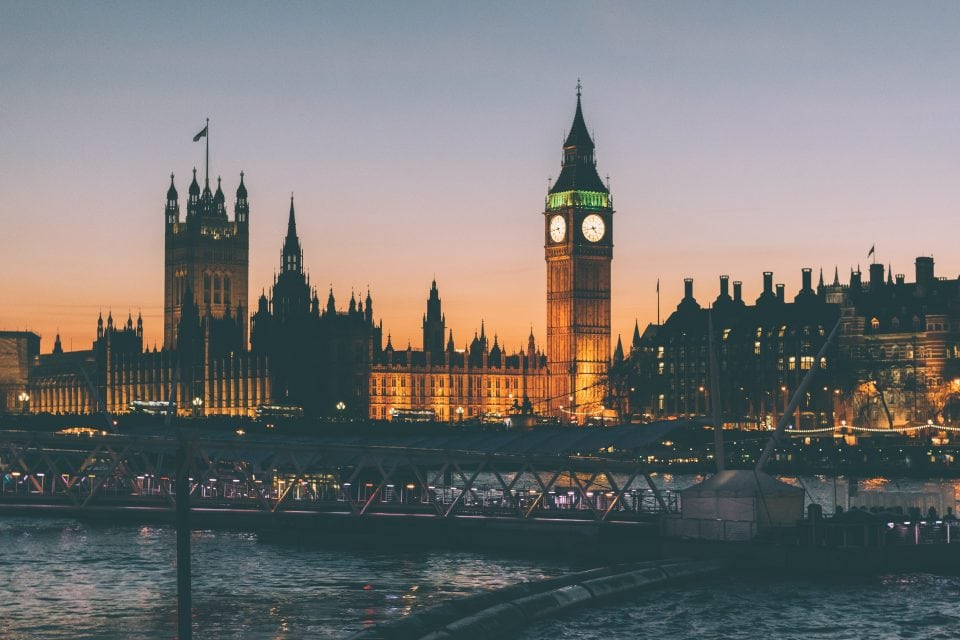ISSN: 2736-6065
Blog Post by Irina von Wiese, former LibDem MEP
London Calling is the European Liberal Forum’s column aimed at bridging the Channel.
When I first met Naomi Long, she was a fellow Renew Europe MEP with an office down the corridor in Brussels. At a conference in the autumn of 2019, she warned that while any type of Brexit risked peace in Northern Ireland, leaving the EU customs union, in particular, would lead the province back to the dark days of the Troubles. I remember this speech because she had tears in her eyes and was visibly shaking. Having grown up in Belfast, Naomi knew what she was talking about. She said that peace is a fragile thing, and you don’t play games with it.
Today, Naomi is Minister of Justice in the Northern Ireland Executive and has to watch her own predictions come true. Sectarian violence has broken out again across the province with rioters hurling bricks, fireworks and petrol bombs at lines of police officers and police vans. In Belfast, angry mobs gathered on either side of the so-called Peace Wall in West Belfast which separates predominantly Protestant loyalist communities (keen to keep the province in the United Kingdom) from predominantly Catholic nationalist communities who want reunification with the Republic of Ireland. It all looks too familiar.
While riots may have been fuelled by the failure of police to intervene in a catholic funeral procession in breach of lockdown rules, many blame new border controls between the province and Great Britain (England, Scotland and Wales).
Under the Northern Ireland Protocol (part of the UK-EU Withdrawal Agreement signed in 2019), Northern Ireland remains in the EU customs union, so goods imported from Great Britain to Northern Ireland – mostly food – are subject to EU import procedures. A three months ‘grace period’ was agreed before health certificates for agri-food imports become mandatory, but other border checks began on 1 January.
Unionists were alarmed and threatened to withdraw their support of the conservative government which, until the last general elections, had depended on them for their majority. First signs of unrest and threats against port workers in Larne emerged, and on 1 February customs checks were temporarily suspended. A day later, the EU withdrew its port staff from Northern Ireland, alleging that there had been threats. After reports of empty supermarket shelves in Belfast, the U.K. government unilaterally decided to extend the grace period for checks on food imports from Britain into Northern Ireland. The EU announced it would take legal action against this decision – a clear violation of the Northern Ireland Protocol – and there was talk of further delay of the ratification of the trade deal in the European Parliament. Meanwhile in Westminster, Brexiters and Unionist parties put pressure on Boris Johnson to pull out of the Northern Ireland Protocol altogether. In March, the Loyalist Communities Council – a Northern Irish group which includes representatives of loyalist paramilitaries – wrote to Boris Johnson to announce it was temporarily withdrawing its backing of the Good Friday Agreement.
Ever since the decision to leave the EU customs union – which was neither mandated nor necessary to deliver the Brexit referendum -, the U.K. has faced an unsolvable conundrum over Northern Ireland. It must have been clear to anyone signing the Withdrawal Agreement that there was no easy way to walk the tightrope between unionist and republican interests in Northern Ireland, and that peace rested on this very balance. In cutting the U.K. off the EU market, Boris Johnson knew that a new trade border would have to be erected, either across the island of Ireland or in the Irish Sea. He knew that either would lead to outrage. When President Biden threatened to withhold any U.S. trade agreement over the potential breach of the Good Friday Agreement, Johnson was left with only the latter option. As usual, he buried the problem and promised the impossible – convincing enough to win the December 2019 election. Today, after 100 days of Brexit reality and the end of the grace period, will he be able to break yet another promise, unnoticed?
The pandemic has served him with a handy excuse for economic misery, and the recent success of the U.K. vaccine roll-out, amplified by the EU’s mistakes, has seen his popularity rise. But time is running out for him. Once the pandemic is brought under control on both sides of the Channel, Brexit will continue to plague food importers in Belfast, and new check points at Northern Irish ports will continue to enrage unionists. Trade between North and South will have to compensate for the barriers between East and West, bolstering the Republican cause. 23 years after the end of the Troubles, how long can the Peace Wall hold?
Naomi Long, as justice minister, is desperately trying to keep the peace in her province. So far, it looks like she is losing her battle: more rioting broke out in Northern Irish cities last night. Over twelve nights of disorder, 88 police officers and many of the rioters, including children, were injured. Had someone heeded her warnings back in 2019, this may have been so easily avoided.
